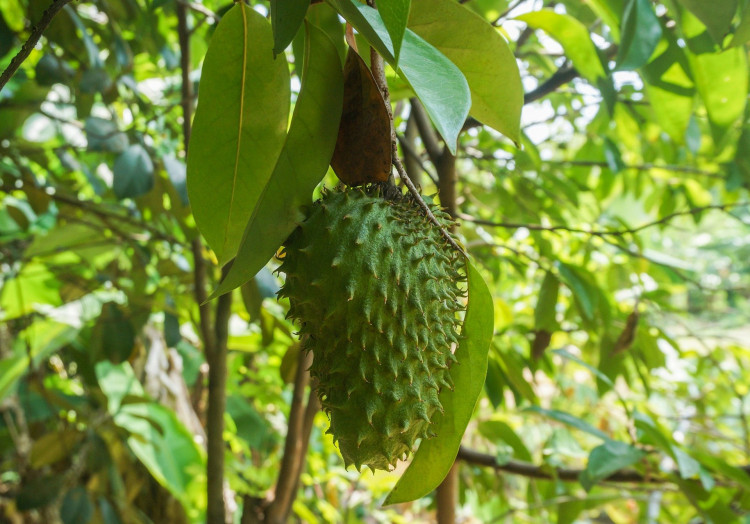Soursop, also called guanábana, is often unheard of. This weird-looking fruit grows on the Graviola tree, native to the Caribbean, Mexico, the Caribbean, and Central and South America, as well as in tropical climates.
Along with enhancing a good night's sleep, reducing inflammation, and battling bad bacteria, soursop has been shown to kill cancer cells in the lab. Learn how this tropical "hidden gem" will improve your wellbeing and delight your taste buds as well.
Soursop is said to destroy cancer cells, but it is a false treatment, the FDA says
In 2008, the Federal Trade Commission reported that the use of soursop for cancer care was "bogus, "and that there was "no credible scientific evidence" that soursop extract can prevent, heal, or treat cancer of any sort.
A U.K. court case involving the selling of Triamazon, a soursop medicine, also resulted in the criminal conviction of a man promising to cure individuals for cancer in 2008. A council spokesperson who instigated the action said it is as critical now as ever that individuals are shielded from exchanging unproven products with unfounded statements as to their impact.
Then eight years later, in the laboratory, mice with cancer were fed an analysis of Annona muricata leaves (the soursop tree). Soursop extract worked to stop cancer growth in that study, but more experiments are needed to explain the possible effects on humans.
Soursop is high in antioxidants and may lower the risk of chronic disease
Soursop does not appear on the list if you Google search for fruits rich in antioxidants, but don't let that put you off. There are antioxidants or compounds in this tropical fruit that help neutralize free radicals that can kill cells and reduce the risk of disease.
In one study, researchers looked at soursop's antioxidant properties and found that the fruit was able to effectively protect against free radical damage.
Soursop helps in suppressing inflammation
Soursop is used to combat inflammation because, according to a report by the National Library of Medicine, it contains "more than 200 chemical compounds ... the most important being alkaloids, phenols, and acetogenins," which help to suppress inflammation.
Plant-derived alkaloids are an impressive source of antioxidants which help to reduce inflammation. According to a study, these alkaloids were documented to minimize colonic inflammation and damage in a variety of colitic models. Start eating soursop, if you're looking for a new way to minimize inflammation.






